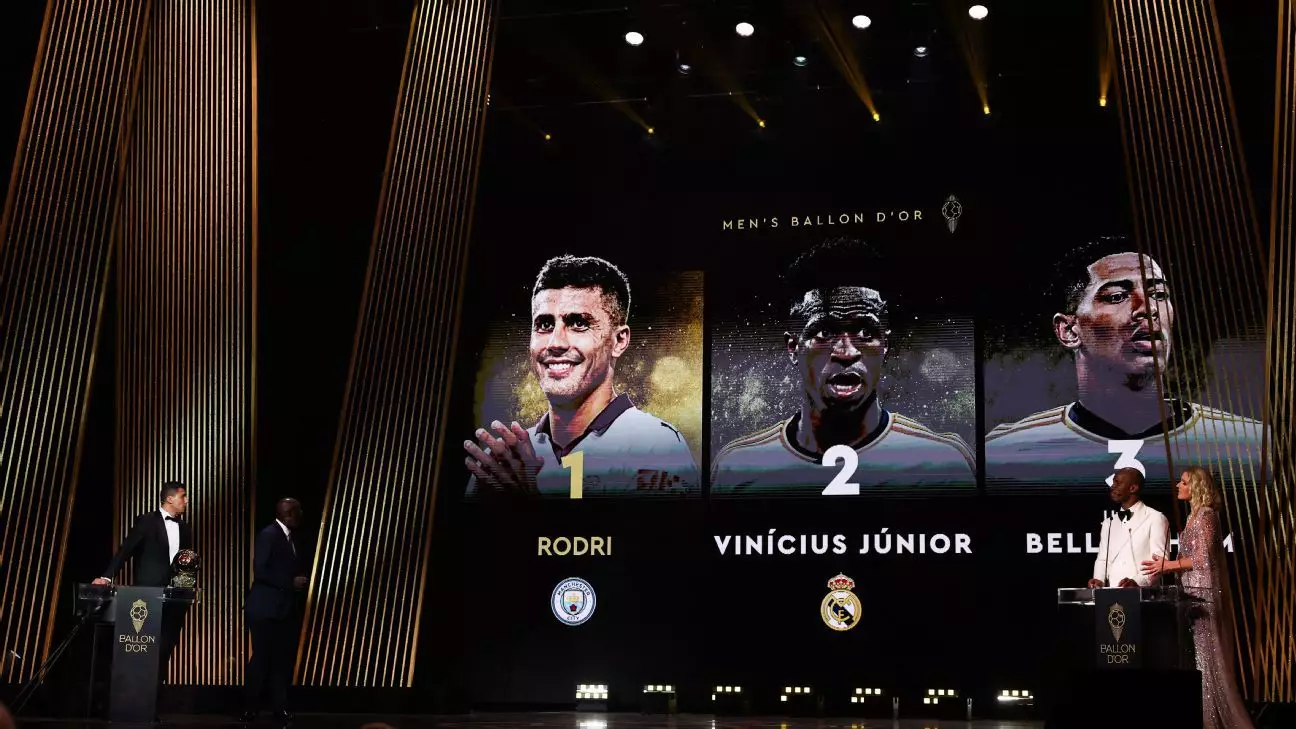The recent Ballon d’Or ceremony in Paris ignited a wave of criticism directed at Real Madrid from LaLiga president Javier Tebas. The club’s decision to boycott the prestigious event came as a surprise to many, particularly after speculation suggested that Manchester City’s Rodri would take the award instead of Real Madrid’s shining star, Vinícius Júnior. The 2023 ceremony became a battleground not just for awards but for ideologies surrounding sportsmanship, recognition, and the essence of football itself.
Tebas’s comments opened a discourse on the expected behavior of giants in football. He emphasized values traditionally associated with Real Madrid, such as sportsmanship and respect for the competition. “The most important values of this club are being a gentleman,” he remarked. His statement touches upon a deeper issue; the image of Real Madrid as a club basking in glory, now seemingly tarnished by what he describes as exaggerated victimhood. According to Tebas, the transparency of France Football’s voting system—backed by a coalition of 100 journalists—should render such grievances unnecessary. This perspective compels fans and players alike to consider what values are upheld in the face of adversity.
The views from former Real Madrid players paint a different picture. Legendary striker Karim Benzema articulated a profound disappointment over Vinícius’ exclusion from the accolade, insisting that his performances were worthy of the award. Benzema highlighted the Brazilian’s critical contributions to Real Madrid’s success last season with an impressive tally of 24 goals and 11 assists. His declarations suggest that the emotional resonance of the Ballon d’Or transcends mere numbers; it embodies recognition for unwavering talent and relentless drive.
Benzema’s contrasting viewpoint serves as a reminder that while political posturing may dominate boardroom discussions, the essence of football remains rooted in raw skill and performance on the pitch. He praised Vinícius’s unique talent, signaling that such creativity and flair should be celebrated, not sidelined.
While the immediate disappointment for Vinícius is palpable, Benzema remains optimistic about the young Brazilian’s future. Speaking with conviction, he reassured both Vinícius and fans that it’s merely a matter of time before the talented forward secures a Ballon d’Or for himself. The supportive camaraderie displayed by Benzema toward Vinícius encapsulates the spirit of football—a belief in the eventual triumph born from hard work and modesty—a stark contrast to the narrative of grievance presented by Real Madrid’s upper management.
Ultimately, the juxtaposition of Tebas’s commentary and Benzema’s support prompts reflection on how football clubs and their cultures evolve. The Ballon d’Or ceremony was not merely a farce; it highlighted ingrained values of competition, respect, and recognition within the world of football. The question lingers: How will Real Madrid reconcile its storied legacy with the demands of modern sportsmanship? Only time, alongside the aspirations of players like Vinícius, will unveil the answers.

